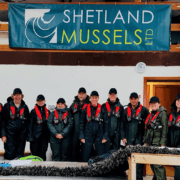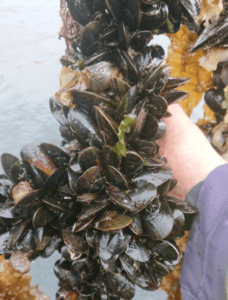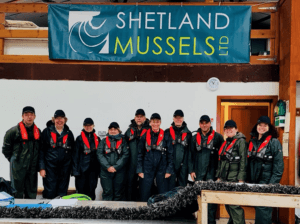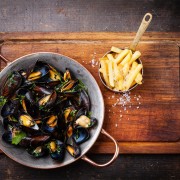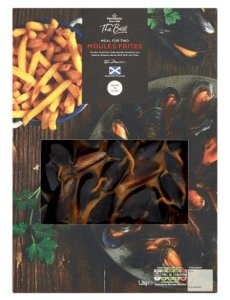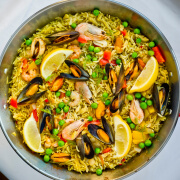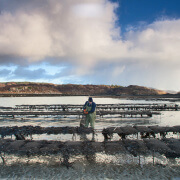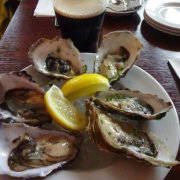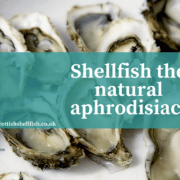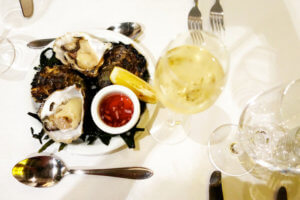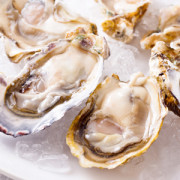Summer is over
I am writing on a brisk Shetland autumn day, which anyone might mistake for a full-blown winter’s gale in more southerly climates. As often as not up here, the weather snaps from summer to winter in one fell swoop and the summer seems very much behind us now. Despite southern parts of Britain getting a final flourish of heat, we seem to be lined up for several weeks of gales and cool temperatures of 7 degrees or below. So, I’m calling it - summer is over.
Unique shellfish
It is however the cold temperatures and cold sea water that make our shellfish unique. So, getting into this part of the season has its benefits and it is one of the best times of the year for the mussels themselves. They have just had a long summer of warm days, plenty of plankton to eat to build up their meats and followed by the current cooler conditions for harvesting mean they should be getting to market in top condition right now.
Visitors
Despite the cooler conditions, we have had a few visitors to the sites lately with the first being the board of Food Standards Scotland making the trip north to find out more about how we farm. We discussed their sampling programme and how that works to classify our areas and ensure plankton blooms over the summer cannot cause the shellfish to become unsafe to eat. We also talked about the extra work and testing we do on every harvest, to make sure all the shellfish we harvest are safely farmed and sustainable. It was a really useful day and was great they made the effort to come up and see us.
Fresh mussels for the Chefs
The following week we had a delegation from Seafood Scotland, who had invited a group of Chefs up from the UK Mainland to also get the chance to see what we do. We were able to show them the farms and also the factory where Scottish Shellfish boxes up the mussels for the wholesale markets. They were keen to get their hands on some shells and take them up to the local award-winning restaurant Frankie’s and try their own recipes with product still dripping with seawater. They too seemed to enjoy the visit and hopefully went back fully inspired to use our shellfish in their daily menus.
Autumn harvesting
Moving through autumn we expect to mainly be harvesting, getting the sites battened down for the rest of the winter and planning for next year’s spring spat input. You can follow Shetland Mussels on twitter for more regular updates of farm happenings @ShetlandMussels


